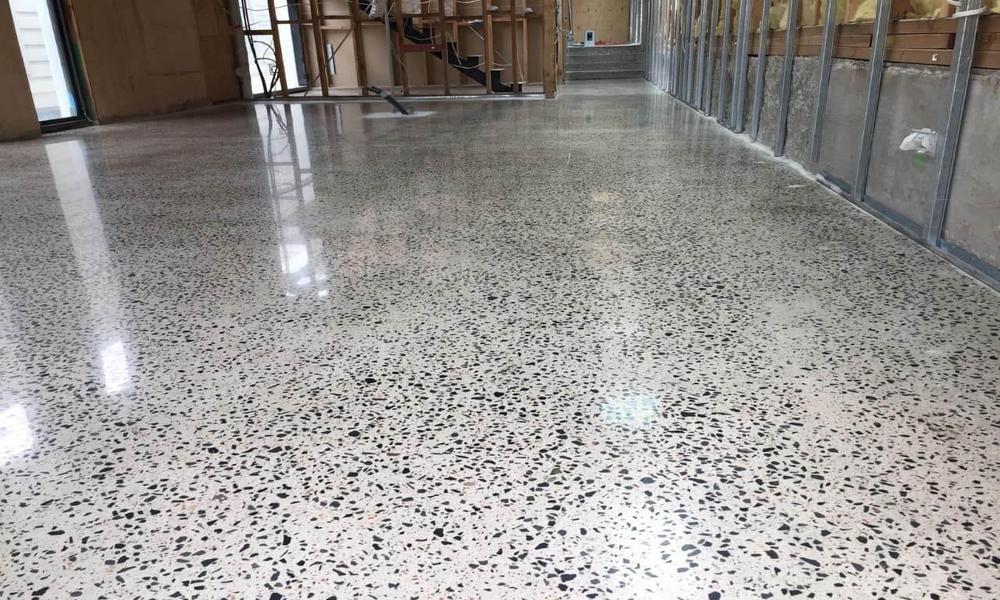Durability: Resin flooring is extremely durable and can withstand heavy foot traffic, making it ideal for high-traffic areas such as hallways, kitchens, and living rooms. It’s also resistant to scratches, stains, and chemicals, making it a popular choice for garage floors.
Easy maintenance: Resin flooring is easy to clean and maintain. It’s resistant to water and dirt, and spills can be wiped up easily, making it a great option for households with kids and pets.
Aesthetics: Resin flooring is available in a wide range of colors and finishes, including high-gloss and matte options. This allows you to choose a flooring option that complements your home’s decor and style.
Safety: Resin flooring can be slip-resistant, making it ideal for areas such as bathrooms, kitchens, and pool decks. This is especially important for households with elderly or young family members.
Eco-Friendly: Resin flooring can be made from eco-friendly materials, such as recycled glass or renewable resources, making it a sustainable option for your home.
Preparation and Installation of Resin Flooring
- Surface Preparation: The surface should be cleaned thoroughly to remove any dirt, oil, or other contaminants. Any cracks or holes should be repaired, and the surface should be leveled.
- Priming: A primer is applied to the surface to ensure good adhesion between the substrate and the resin flooring.
- Mixing the Resin: The two components of the resin are mixed according to the manufacturer’s instructions. The mixture is typically stirred for several minutes to ensure it is properly blended.
- Application: The resin is applied to the surface using a roller or trowel. It is spread evenly and allowed to self-level.
- Curing: The resin needs to cure for the recommended time, which can range from a few hours to several days. The curing time depends on the type of resin and environmental conditions.
- Topcoat: A topcoat is applied to protect the resin flooring from wear and tear. This can be a clear coat or a colored coat to add texture or design to the flooring.
Caring for and Maintaining Your Resin Floor
- Regular Cleaning: Sweep or vacuum the floor regularly to remove dirt and debris that can scratch the surface. Use a mild soap solution and a soft-bristled brush or mop to clean the floor.
- Avoid Harsh Chemicals: Harsh chemicals such as bleach and ammonia can damage the surface of the floor, so avoid using them when cleaning. Instead, use a ph-neutral cleaner specifically designed for resin floors.
- Wipe Up Spills Immediately: Resin floors are resistant to spills and stains, but it’s still important to clean up any spills as soon as possible to prevent them from staining or damaging the surface.
- Protect the Surface: Use furniture pads or coasters under heavy furniture to prevent scratching or denting the surface of the floor. Avoid dragging heavy objects across the floor as this can cause damage.
- Regular Maintenance: It’s important to regularly inspect your resin floor for any signs of wear or damage. If you notice any cracks, chips, or other damage, address them promptly to prevent further damage.




